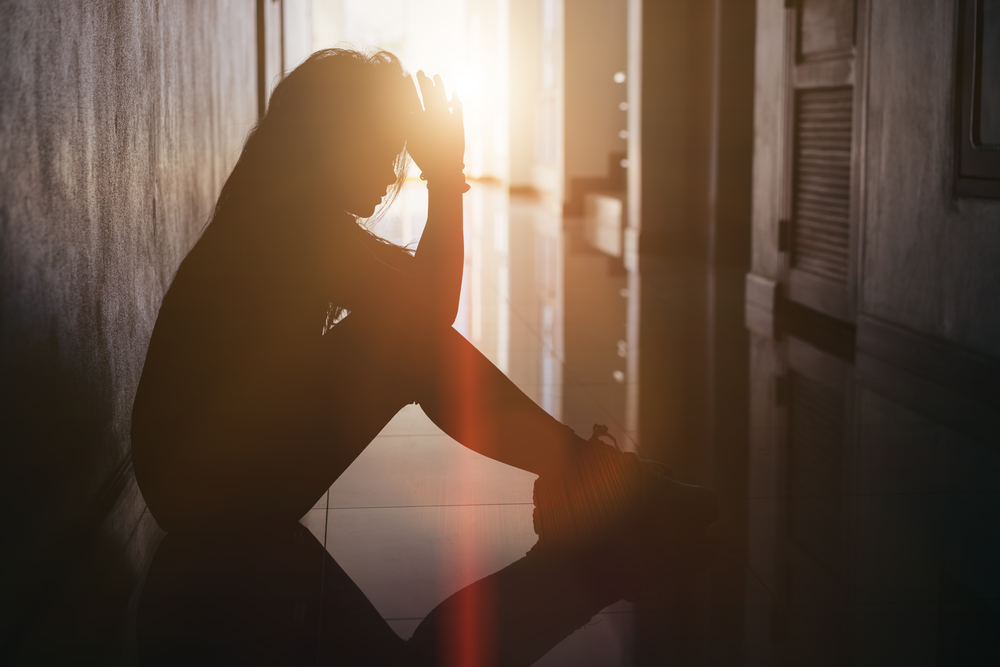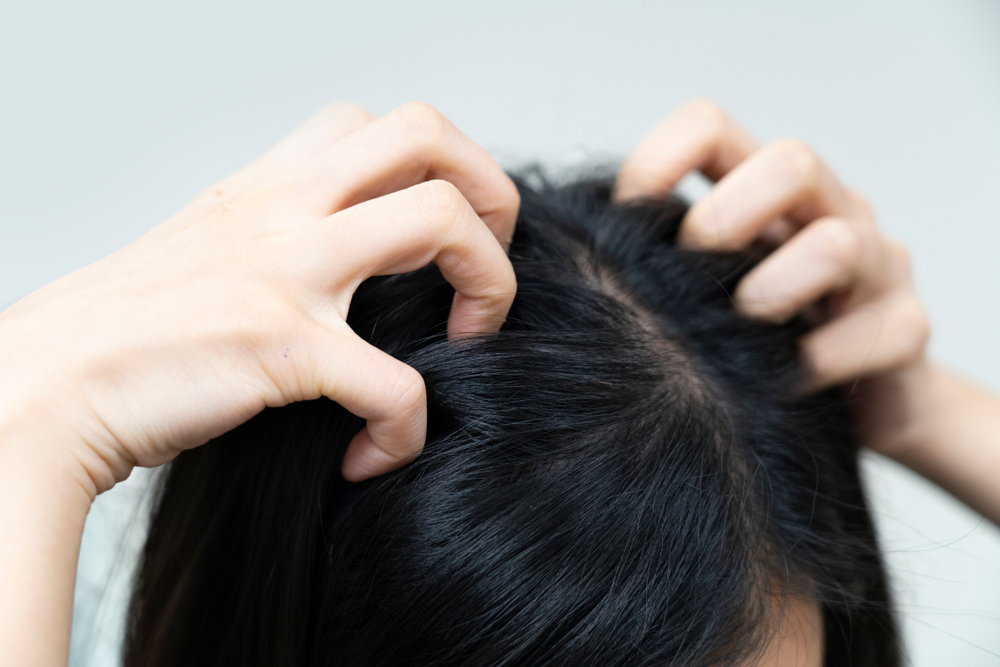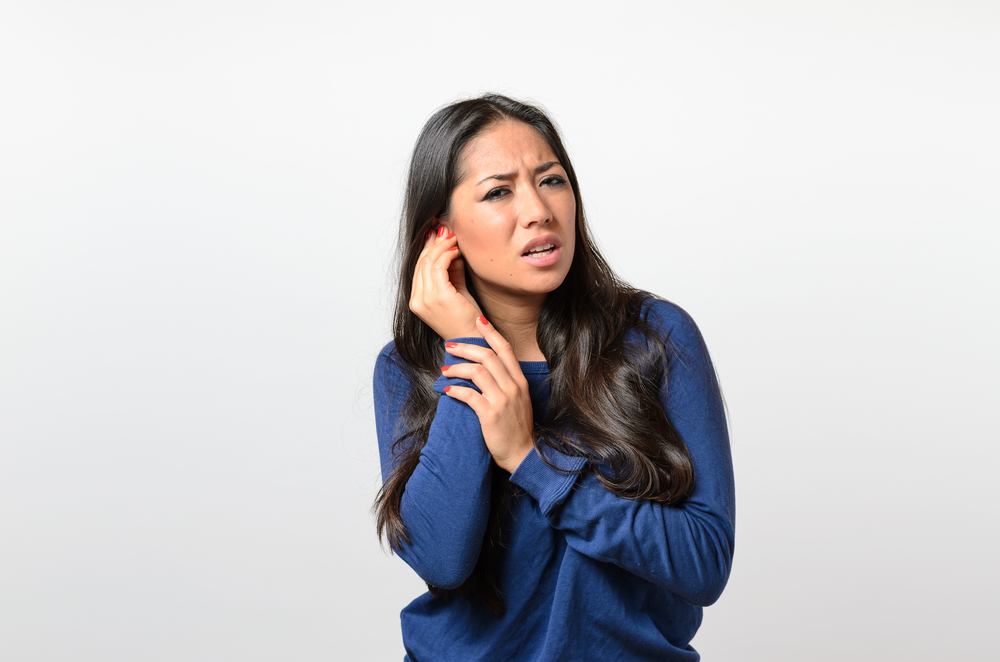Contents:
Medical Video: 5 Common Signs of Anxiety Disorder
Maybe you have felt fear when caught in a threatening or dangerous situation. Crossing the road when a car suddenly flashes fast, for example, or is startled in surprise in a dead-end daydream because it seems like the stove forgot to turn off before leaving the airport. After being remembered, it turns out that it's true die stove, you laugh at yourself and go back to dumbfounding.
Now compare this story. You are on the move as usual — shop at a supermarket near home and meet old friends, for example. In the middle of a missed meeting chat, suddenly you are hit by panic that is very very like going to be visited by a big disaster. Your heart is pounding so much that it feels painful, cold sweat, and dizzy. Suddenly you want to faint or even like to die. Then after everything had passed, the panic turned into helplessness.
One of the two examples above is a case of panic disorder characterized by an attack panic attackwhile the others are ordinary panic. Before finding out which is what, it's good to go deeper into the meaning of panic itself.
Is that panic?
Panic is a sensation of sudden fear that is so strong when facing a condition that is felt dangerous or threatening. This panic is so strong that it blurs the ability to think logically, replacing it with extreme anxiety and anxiety accompanied by an impulsive urge to run or hide. Panic generally occurs in conditions of potential disaster or violence, such as robbery and looting that can endanger health or the soul.
The first case example is an example of an ordinary panic situation triggered by a specific stress trigger that activates a reaction flight or flight body. Panic is instinct. When a person feels stressed, their sympathetic nervous system usually fights, releasing energy overflows to prepare the body for action. Then the parasympathetic nervous system takes over the management of stress, so that the body slowly returns to stability. Panic is now replaced by a sense of relief because we managed to get through the crisis and return to life. This panic episode usually recovers quickly.
But, if anxious or panic comes repeatedly beyond tolerance so that it interferes with life, you should be vigilant. Because, there is a possibility that your panic has become a symptom of a clinical disorder characterized by panic attacks.
What's the difference between normal panic and panic attack?
Panic attackmarked by fear of disaster or loss of control, even when there is no real danger. Panic attackis one of the symptoms of clinical panic disorder. Panic disorder is different from normal fear and anxiety reactions to stressors. Panic disorder is a serious clinical condition that attacks about one in every 75 people who may have a panic disorder.
The second story is an example of a panic disorder. People with panic disorder have an attack of sudden fear and anxiety, which lasts long and repeats, lasts for at least 10-30 minutes or more. This is called a panic attack or panic attack.
During a panic attack, the fear a person experiences is very out of proportion to the actual situation, which is often not threatening. More often, the situation is reality and the reaction caused is not related at all.
What are the signs and symptomspanic attack?
Someone who experiences panic attack may show strong physical reactions during an attack such as palpitations or chest pain; heavy sweating / cold sweat; shivering or hot flashes; tremor or trembling; respiratory problems; The sensation of choking or chest tightness; weakness or spinning head; feeling of fainting; hand tingling or numbness; nausea or abdominal pain; and fear that you lose control of the body or will die. Symptoms of a panic attack can be identical to a heart attack.
Panic attacks can occur at any time, without reason or warning, and without a way to stop it. The main symptom of panic disorder that distinguishes this condition from any other usual occurrence of panic is the fear of experiencing intense and continuous panic attacks in the future. Fear of this attack can cause someone to avoid crowded places and / or situations where panic attacks have occurred, or where they believe attacks can occur.
A person who has a panic disorder may become discouraged and depressed because he cannot do a normal routine such as going to school or working, going to a grocery store, or driving. Severe panic disorder can lead to agoraphobia, which is a phobia in the midst of many people. Agoraphobia sufferers often fear for no apparent reason if they are in the open or have to leave the house.
What causes panic disorder?
Panic disorder often starts in adolescence or early adulthood. For unknown reasons, women are twice as likely to get panic disorder than men. Panic disorder sometimes decreases in the family, as well as hereditary risk for other complex diseases, such as cancer or heart disease. But no one knows for sure why some family members can have panic disorder while others don't.
Panic attacks can also be triggered by a combination of physical and psychological causes, such as stress or trauma. Although the attack can occur suddenly, eventually the sufferer can really help trigger symptoms out by responding to physical symptoms of panic attacks.
For example, if someone with a panic disorder experiences heart palpitations after drinking coffee, strenuous exercise, or taking certain drugs, they might interpret this as a symptom of a panic attack. This thought then triggers anxiety which ultimately triggers a real panic attack. On the other hand, coffee, exercise, or certain drugs can cause panic attacks.
How can I know if I suffer from panic disorder?
Please remember that only licensed therapists can diagnose panic disorder. Many people can experience occasional panic attacks, and if you have one or two of these attacks, there is no specific reason to worry. Not everyone who experiences a panic attack will develop a panic disorder.
But if you suffer from repeated (four or more) panic attacks in a short period of time, and especially if you have had a panic attack but continue to be overshadowed by fear of a future recurrence episode, immediately consider consulting a mental health professional who specializes in panic disorder or anxiety to get a definite diagnosis.
READ ALSO:
- 13 Unique and Simple Things to Get Rid of Stress
- The comments that demean women, have a large psychological impact
- Using Hypnotherapy to Cure Psychological Trauma












